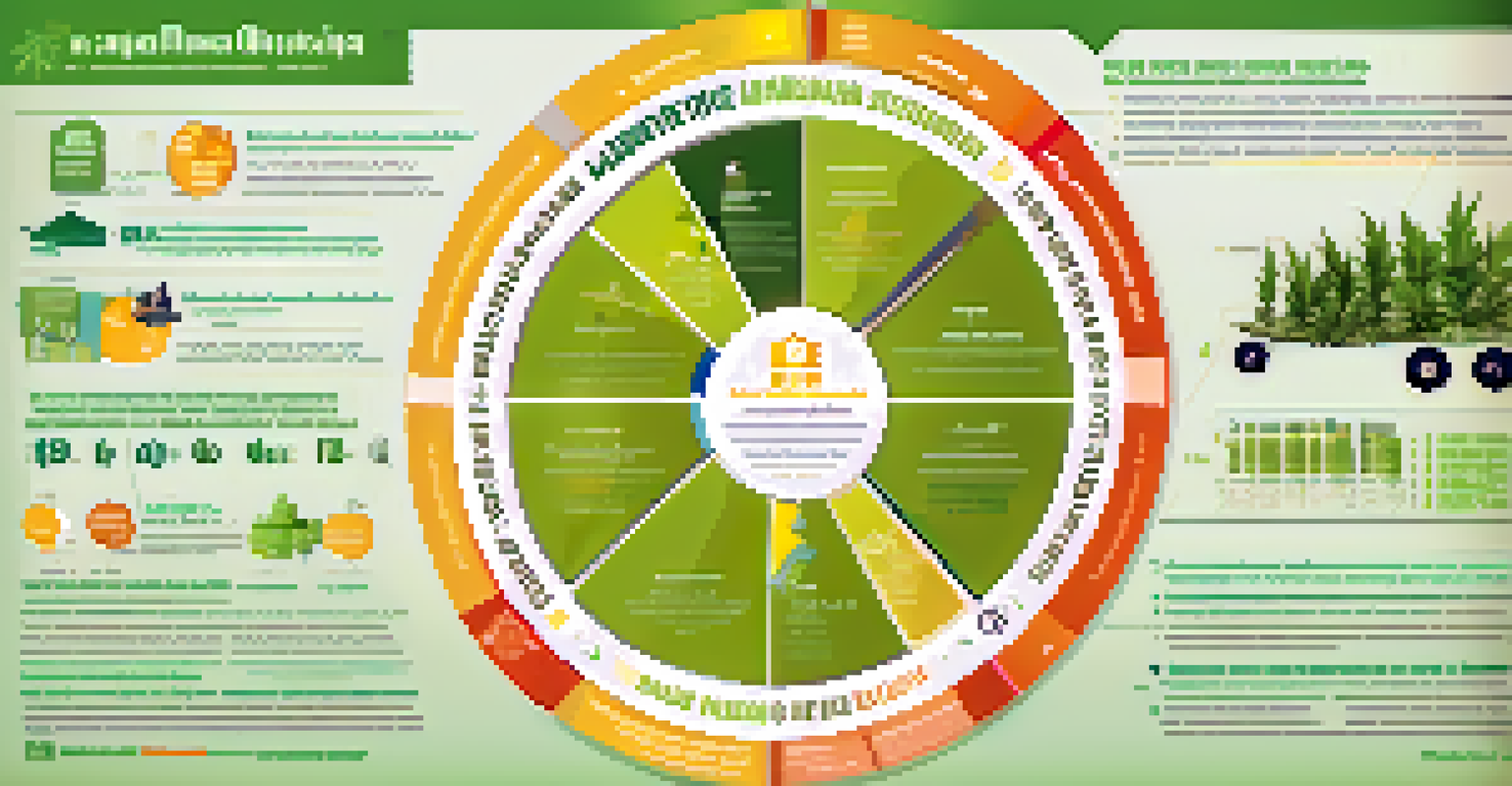The Impact of Advocacy Groups on Marijuana Legislation Changes

Understanding Advocacy Groups and Their Role
Advocacy groups are organizations that aim to influence public policy and legislation. They often focus on specific issues, such as marijuana legalization, to promote their agenda. By raising awareness, educating the public, and lobbying lawmakers, these groups play a crucial role in shaping the legal landscape surrounding marijuana.
The measure of success is not whether you have a tough problem to deal with, but whether it is the same problem you had last year.
One prominent example of such a group is the Marijuana Policy Project (MPP), which has been instrumental in advocating for marijuana reform across various states. Their efforts include drafting legislation, mobilizing grassroots support, and providing resources to local advocates. Such organized efforts ensure that the voices of supporters are heard in the legislative process.
The impact of advocacy groups goes beyond just lobbying; they also help shift public perception. By utilizing social media, campaigns, and community outreach, these organizations can change how people view marijuana use and its legalization, making it a more acceptable topic in mainstream discussions.
The Rise of Public Support for Marijuana Legalization
Over the past few decades, public opinion regarding marijuana has shifted dramatically, with a growing number of people supporting legalization. Advocacy groups have played a significant role in this shift, often serving as the bridge between policymakers and the public. Their campaigns educate citizens on the benefits of legalization, such as economic growth and criminal justice reform.

For instance, groups like NORML (National Organization for the Reform of Marijuana Laws) have conducted extensive research and outreach to highlight the positive effects of legalization. This includes statistics on tax revenue generated in states that have legalized marijuana, which can be used to fund education and healthcare programs. This data not only informs public opinion but also pressures lawmakers to consider reform.
Advocacy Groups Drive Legal Change
These organizations influence public policy and shape the legal landscape surrounding marijuana through education and lobbying efforts.
As more states have moved toward legalization, advocacy groups have been quick to capitalize on this momentum. By sharing success stories from states like Colorado and Washington, they demonstrate the tangible benefits of marijuana reform, reinforcing public support and encouraging further legislative changes.
Lobbying Efforts and Political Influence
Lobbying is a key strategy used by advocacy groups to influence lawmakers directly. By meeting with legislators, providing them with information, and rallying support from constituents, these organizations can help shape the laws that govern marijuana use and distribution. This direct engagement with policymakers is essential for advancing their agenda.
Advocacy is not just about speaking up; it's about creating a platform for voices that have been silenced.
For example, during legislative sessions, advocacy groups often organize lobby days where supporters can meet with their representatives. These events not only show politicians the level of public support for marijuana reform but also provide a platform for advocates to share personal stories about how legalization has positively impacted their lives.
Moreover, the political contributions that advocacy groups can make to campaigns also amplify their influence. By supporting candidates who align with their mission, these groups can help ensure that pro-legalization voices have a seat at the table when critical decisions about marijuana legislation are made.
Coalitions and Collaborative Efforts
Advocacy groups often form coalitions with other organizations to strengthen their collective voice and broaden their reach. By uniting different stakeholders, including health professionals, civil rights organizations, and business groups, they can create a more robust support system for marijuana reform. This collaboration enhances their credibility and influence.
For instance, the formation of coalitions like the Cannabis Equity Coalition combines the voices of various groups advocating for social justice alongside legalization. This alliance emphasizes the importance of addressing the racial disparities and injustices associated with past marijuana laws, ensuring that the conversation around legalization is inclusive and equitable.
Grassroots Movements Mobilize Support
Local activism plays a crucial role in pushing for marijuana legalization, empowering communities to advocate for their rights.
These coalitions often work together to draft comprehensive legislation that reflects the interests of diverse communities. By pooling resources and expertise, they can more effectively lobby for laws that not only legalize marijuana but also promote social equity and justice.
Grassroots Movements and Community Engagement
Grassroots movements are crucial in the advocacy landscape, as they harness the power of local communities to push for change. Advocacy groups often encourage individuals to engage in activism, whether through signing petitions, attending rallies, or contacting their representatives. This bottom-up approach can create significant pressure on lawmakers to act.
A great example of this grassroots effort is seen in states where local activists have successfully mobilized communities to support ballot initiatives for legalization. These initiatives often emerge from community needs and perspectives, showcasing the importance of local voices in the legislative process. When citizens actively participate, it can lead to significant change at the state level.
Furthermore, advocacy groups frequently provide training and resources for community members to become effective advocates. By empowering individuals with the knowledge and tools necessary to advocate for their rights, these organizations create a more informed and engaged citizenry that can influence marijuana legislation.
Legal Challenges and Advocacy Group Responses
As marijuana legislation evolves, advocacy groups often face legal challenges that threaten to undermine their efforts. These challenges can come from various fronts, including opposition from law enforcement or other groups that resist change. Advocacy organizations must be prepared to respond strategically to these obstacles to continue their work.
For instance, when certain states have attempted to roll back legalization or impose stricter regulations, advocacy groups have quickly mobilized to fight back. They may engage in legal battles, launch public campaigns, or rally community support to counter these efforts. This resilience highlights their commitment to ensuring that progress is not easily reversed.
Coalitions Enhance Advocacy Efforts
By forming alliances with diverse stakeholders, advocacy groups strengthen their credibility and create a unified voice for marijuana reform.
Additionally, advocacy groups often monitor court cases that could set important precedents for marijuana legislation. By staying informed and involved, they can advocate for outcomes that align with their goals and protect the rights of cannabis users, ultimately shaping the future of marijuana laws.
The Future of Advocacy and Marijuana Legislation
Looking ahead, the role of advocacy groups in marijuana legislation is likely to evolve as more states consider legalization. With increasing acceptance of marijuana use, these organizations will need to adapt their strategies to address new challenges and opportunities. They may focus on issues related to regulation, education, and social equity in the cannabis industry.
As public interest continues to grow, advocacy groups will likely expand their outreach efforts to reach a broader audience. This could include targeting younger demographics through social media campaigns and educational programs that highlight the benefits of legalization. Engaging new supporters will be crucial for maintaining momentum in the legislative process.

Ultimately, the future of marijuana legislation will heavily depend on the ongoing efforts of advocacy groups. By remaining committed to their mission and adapting to the changing landscape, these organizations will continue to play a vital role in shaping the laws and policies governing marijuana use in the United States.